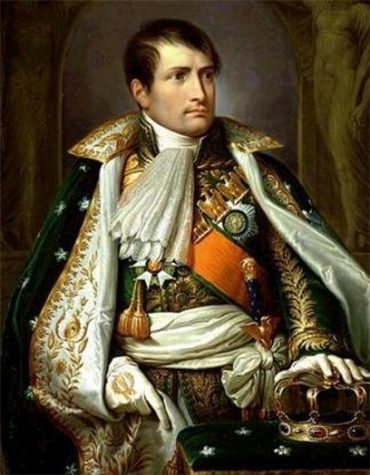The United States of Europe That Never Was
December 13, 2018
Perhaps only a decade ago, Europe was on course to unite. The European Union was expanding, with countries like Bulgaria, Croatia, and Romania joining it, and, in a sense, growing tall; the EU was going through the process of political and economic centralization. To the outside eye, it looked as though the dream of a single European superstate was only a matter of time.
I read “The United States of Europe” by T. R. Reid a few years ago. Written in 2004, the book provides a perspective from the era following the unification of the various European currencies into the Euro in late 2001.
Reid argues the formation of the “USE” is inevitable primarily due to the economic logic of the state. The separation of the different economies of the European nations caused, at least in large part, many of the wars that seemed to plague the continent in general for a millenium, but specifically the World Wars.
In the wake of that great calamity, the European Economic Community (EEC) was founded to partially merge the economies of France and then-West Germany, first to prevent another war by making the countries dependant on each other, and second to facilitate the economic expansion of both: the German coal producing regions of the Ruhr and the Saar, naturally feeding France’s steel industry.
In the subsequent decades, the EEC expanded, its goal of creating a continental common market first attracting Western Europe in the 1960s, 70s, and 80s, then Eastern Europe after the collapse of the USSR.
The EEC evolved into the EU in 1993, with the signing of the Treaty of Maastricht, therein drastically increasing the rate of political integration of the continent.
The now-28 member states of the collective grew closer together through the 2000s. It seemed inevitable that the continent would formally unite into a new superstate, perhaps one to match or even replace the USA as the supreme hegemonic player on the world stage.
But if you look at the newspaper today (as of December 12, 2018), headlines like “A Fractured European Union Is Rudderless Amid Turmoil,” or “Macron Vowed a Revival. Protest Bring a ‘Catastrophe,’” are prominently announced in big, bold letters.
The EU started to show signs of cracking during the Greek Financial Crisis after the Great Recession in 2008 and 2009. “The Crisis,” as it was called in Greece, forced the EU to fiscally aid the Greek government in lessening their deficit spending, causing anti-EU dissent across the continent, especially in Germany, as they essentially did not want to pay the Greek tab. The EU weighed the option of removing Greece from the body altogether, but determined not to, only aggravating the emerging anti-EU sentiment across the continent.
However, the almost-apparent collapse of the EU didn’t enter the realm of possibility until the infamous and apocryphally recollected 2016 United Kingdom Brexit Referendum. The UK had always been a reluctant member of the EU, exemplified at the very least by their refusal to get on board with the single European currency, instead opting to stick with the British Pound.Nevertheless, it came as a surprise when the citizens of the United Kingdom delivered a 52-48 Brexit victory, sealing the nation’s fate.
It seemed that Europe would respond with a resounding “good riddance,” as it was really the UK’s loss, and not the EU’s.
That retorte is now also endangered. The rise of nationalism and anti-globalist rhetoric that caused the Brexit disaster, continues to this day, and is not, as it initially seemed, confined to the United Kingdom, but a challenge facing the entirety of the EU.
In Eastern Europe, we are watching a reneging of democracy, an autocratic installation reminiscent of the dark, Soviet past the region has struggled with for the last thirty years. The ascension of the nationalist far-right is present across the whole of Europe as well: the German Alternative for Deutschland, French National Rally, and Italian Lega Nord parties have also gained popularity in recent elections. No one is immune to this nationalist virus: even stalwarts of liberalism such as the Netherlands had people like Geert Wilders attempt to take power.
In addition, with Angela Merkel leaving the German political scene at the end of her term, and the concurrent splintering of her center-right party, the CDU-CSU, Europe will be without a de-facto leader. Many thought French President Emmanuel Macron would take this position, but the Yellow Jacket Protests seem to be putting an end to that possibility.
The far right ascendant in Italy, and the UK preoccupied with attempting to leave the EU without a total economic and bureaucratic collapse, there is no obvious choice of someone to unite this raucous throng.
But the United States of Europe must become just what they say they are: united. To halt the upswing in the repudiation of democracy worldwide, we must stand strong in our own bastions of free thought. That starts in Europe and our own republic, the USA.
Don’t be fooled: the anti-EU movement is one based almost entirely on nationalism. In the UK it was fear of immigrants that brought the issue to the national stage; anger at the perceived threat of the ‘other’ made the referendum happen. Economically, it is a massive regression: a failure that will hurt the very people who forced the aforementioned regression in the first place.
We are watching history being made: a surge in political egocentrism causing the undoing of the governmental and capitalistic progress of the past half-century. A global fear-mongering campaign nearly rivaling the one that made today’s globe eighty years ago.
Eventually, people will have to do something. I hope that someday the people of Hungary and Poland, who, by virtue of not exercising their freedom of speech while they still have it, are facilitating the establishment of dictatorships, will remember history, the turbulent and violent 20th century, and learn from it.
We always talk about the political pendulum, eternally correcting the mistakes we make in national decision making. And how it will always be there: the elasticity of voters and the centrism emblematic of our representational democracy. But authoritarianism is different; authoritarianism removes the very ability of the people to determine their own course, instead replacing the pendulum with a autocrat.
Europe is a warning, an example of deceptive demagoguery, the disconnect that it causes, coercing people into choosing against their own interest.















Tom • Dec 13, 2018 at 4:05 PM
Fantastic summary of the current state of events with the near history of Europe outlined. A primer for many folks that puts much of this turmoil in perspective.